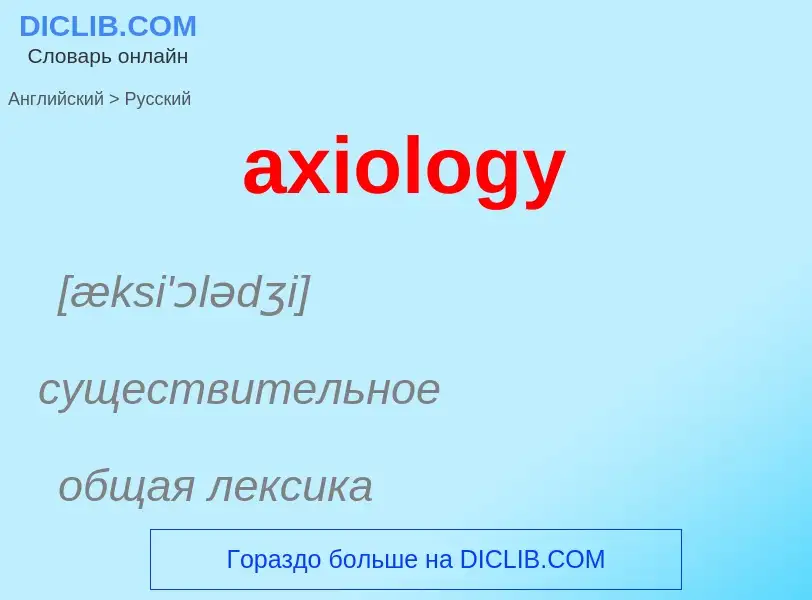Μετάφραση και ανάλυση λέξεων από τεχνητή νοημοσύνη
Σε αυτήν τη σελίδα μπορείτε να λάβετε μια λεπτομερή ανάλυση μιας λέξης ή μιας φράσης, η οποία δημιουργήθηκε χρησιμοποιώντας το ChatGPT, την καλύτερη τεχνολογία τεχνητής νοημοσύνης μέχρι σήμερα:
- πώς χρησιμοποιείται η λέξη
- συχνότητα χρήσης
- χρησιμοποιείται πιο συχνά στον προφορικό ή γραπτό λόγο
- επιλογές μετάφρασης λέξεων
- παραδείγματα χρήσης (πολλές φράσεις με μετάφραση)
- ετυμολογία
axiology - translation to ρωσικά
[æksi'ɔlədʒi]
существительное
общая лексика
аксиология (философское учение о ценностях)
Ορισμός
I cant see the movie for that guy's buckethead.
Βικιπαίδεια

Axiology (from Greek ἀξία, axia: "value, worth"; and -λογία, -logia: "study of") is the philosophical study of value. It includes questions about the nature and classification of values and about what kinds of things have value. It is intimately connected with various other philosophical fields that crucially depend on the notion of value, like ethics, aesthetics or philosophy of religion. It is also closely related to value theory and meta-ethics. The term was first used by Paul Lapie, in 1902, and Eduard von Hartmann, in 1908.
The distinction between intrinsic and extrinsic value is central to axiology. One conceptualization holds that something is intrinsically valuable if it is good in itself or good for its own sake. It is usually held that intrinsic value depends on certain features of the valuable entity. For example, an experience may be said to be intrinsically valuable by virtue of being (because it is) pleasurable or beautiful or "true" (e.g., the ascertainment of a fact can be said to be valuable in itself). Extrinsic value, by contrast, is ascribed to things that are valuable only as a means to something else. Substantive theories of value try to determine which entities have intrinsic value. Monist theories hold that there is only one type of intrinsic value. The paradigm example of monist theories is hedonism, the thesis that only pleasure has intrinsic value. Pluralist theories, on the other hand, contend that there are various different types of intrinsic value, for example, virtue, knowledge, friendship, etc. Value pluralists face the problem of explaining whether or how the different types of value can be compared when making rational decisions. Some philosophers state that values do not exist on the most fundamental level of reality. One such view holds that a value statement about something just expresses the speaker's approval or disapproval of this thing. This position is opposed by realists about value.


